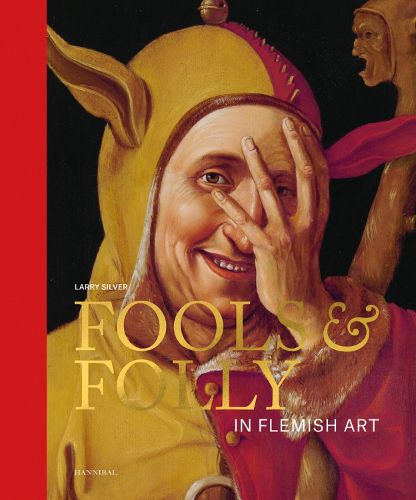Readings Newsletter
Become a Readings Member to make your shopping experience even easier.
Sign in or sign up for free!
You’re not far away from qualifying for FREE standard shipping within Australia
You’ve qualified for FREE standard shipping within Australia
The cart is loading…






According to medieval theologians, faith is a deadly serious business. Humour and virtue are irreconcilable, because laughter is uncontrollable and escapes the control of reason. A modest smile is permitted. But laughing loudly, grinning and grimacing: these are the playing field of the devil ? just as pernicious as other uncontrollable urges, such as physical love or the addiction of the gambler. That is the domain of the peasant or fool. In the late Middle Ages, every right-thinking town-dweller knew the difference between the peasant and the fool. Peasants are innocently gullible, primitive, throwing themselves into feasting, gorging, drinking and sex. The peasant is the antithesis of the cultivated urbanite, who fastidiously controls his urges ? and who therefore above all must not laugh too loudly. Only during Innocents Day parties or Shrove Tuesday celebrations is it permitted for urban partygoers to play the fool and to show their 'underbelly'. In contrast to the peasant, the fool escapes the existing order. He holds up a mirror to the self-declared wise citizens, because 'the fool reveals the truth through laughter', even though it may be hidden between piss and shit, sex and snot. It is for precisely this reason that Erasmus, in his In Praise of Folly writes not as himself but through the persona of Folly, a broad back behind which the wise person can hide when he denounces social problems. Laughter thus alters the world. In this context, the fool and irony became important motifs in medieval art, especially in the Low Countries. This original art book is illustrated with dozens of top-quality works by Flemish masters from worldwide collections. Larry Silver is professor of art history at the University of Pennsylvania and the author of the monograph Hieronymus Bosch. He is renowned worldwide as one of the most important art historians of our age. With an introduction by Dr. Katharina Van Cauteren, art historian and chief of staff at The Phoebus Foundation. SELLING POINTS: . In praise of folly: on the fool and the jester in Flemish art . Published to accompany an exhibition at Denver Art Museum - Saints, Sinners, Lovers, and Fools, October 16, 2022 - January 22, 2023 120 colour illustrations
$9.00 standard shipping within Australia
FREE standard shipping within Australia for orders over $100.00
Express & International shipping calculated at checkout
According to medieval theologians, faith is a deadly serious business. Humour and virtue are irreconcilable, because laughter is uncontrollable and escapes the control of reason. A modest smile is permitted. But laughing loudly, grinning and grimacing: these are the playing field of the devil ? just as pernicious as other uncontrollable urges, such as physical love or the addiction of the gambler. That is the domain of the peasant or fool. In the late Middle Ages, every right-thinking town-dweller knew the difference between the peasant and the fool. Peasants are innocently gullible, primitive, throwing themselves into feasting, gorging, drinking and sex. The peasant is the antithesis of the cultivated urbanite, who fastidiously controls his urges ? and who therefore above all must not laugh too loudly. Only during Innocents Day parties or Shrove Tuesday celebrations is it permitted for urban partygoers to play the fool and to show their 'underbelly'. In contrast to the peasant, the fool escapes the existing order. He holds up a mirror to the self-declared wise citizens, because 'the fool reveals the truth through laughter', even though it may be hidden between piss and shit, sex and snot. It is for precisely this reason that Erasmus, in his In Praise of Folly writes not as himself but through the persona of Folly, a broad back behind which the wise person can hide when he denounces social problems. Laughter thus alters the world. In this context, the fool and irony became important motifs in medieval art, especially in the Low Countries. This original art book is illustrated with dozens of top-quality works by Flemish masters from worldwide collections. Larry Silver is professor of art history at the University of Pennsylvania and the author of the monograph Hieronymus Bosch. He is renowned worldwide as one of the most important art historians of our age. With an introduction by Dr. Katharina Van Cauteren, art historian and chief of staff at The Phoebus Foundation. SELLING POINTS: . In praise of folly: on the fool and the jester in Flemish art . Published to accompany an exhibition at Denver Art Museum - Saints, Sinners, Lovers, and Fools, October 16, 2022 - January 22, 2023 120 colour illustrations